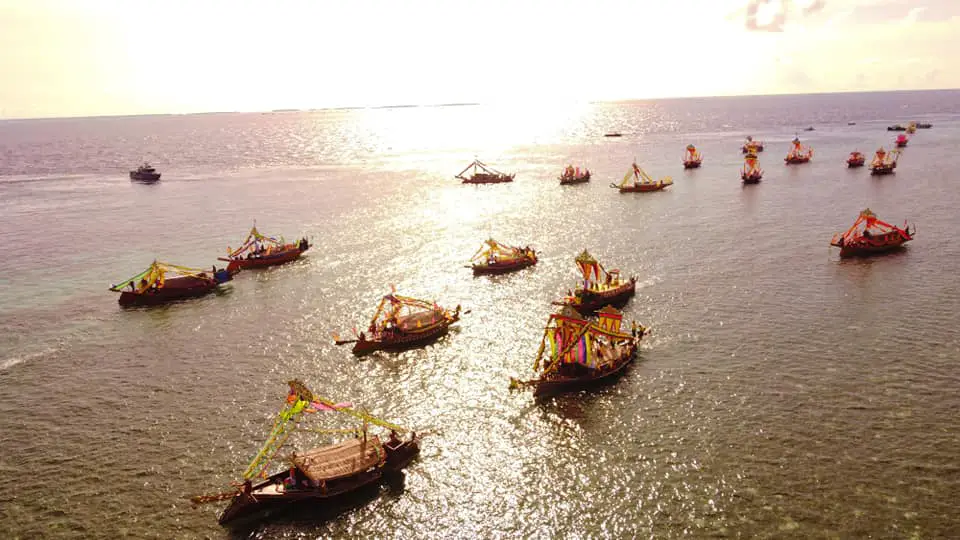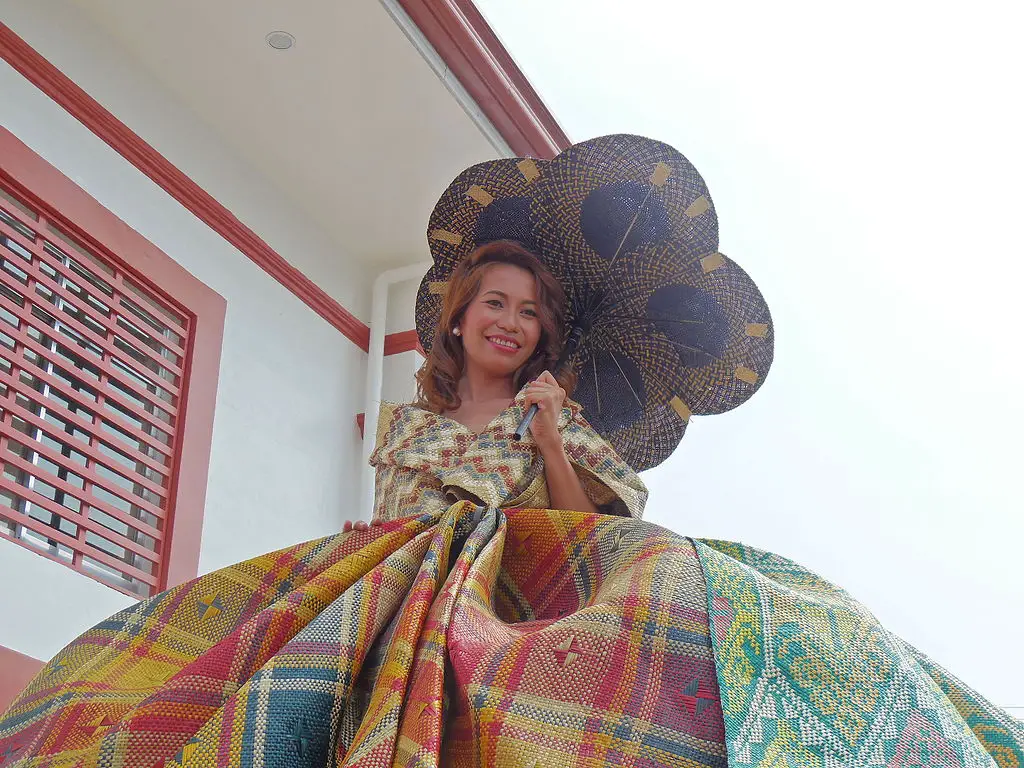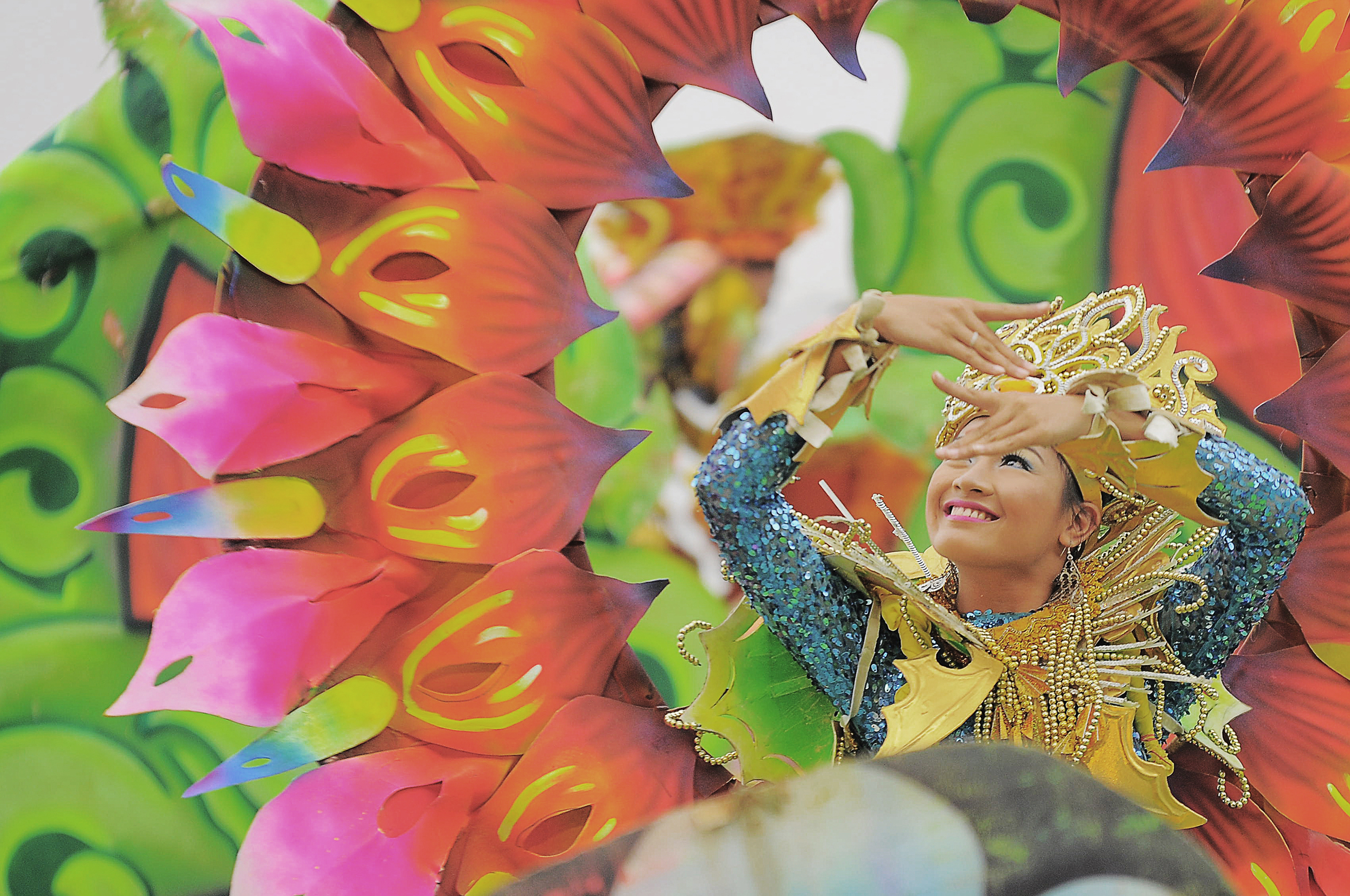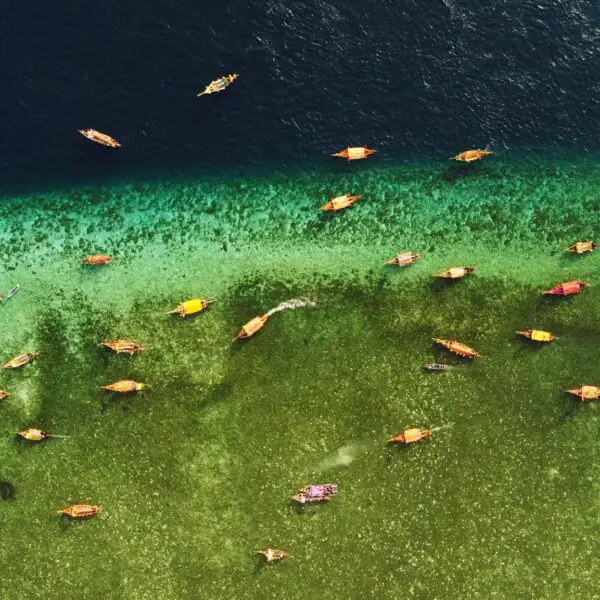The Philippines has several holidays throughout the year. There are several Philippine festivals in September, with the following being some of the more noteworthy.
Table of contents
- KAMAHARDIKAAN SIN TAWI-TAWI
- AGAL-AGAL FESTIVAL
- LEPA FESTIVAL
- Aurora Festival
- Banigan-Kawayan Festival
- Bicol Food Festival
- Busig-On Festival
- Dahunog sa Dipolog
- Dalit Festival
- Diyandi Festival sa Iligan
- Djanggo Festival
- Hin-ay Festival
- Lapay Bantigue Dance Festival
- Linapit Food Sharing Festival
- Megayon Festival
- Sarakiki Festival
- T’boli Tribal Festival
- Peñafrancia Festival
KAMAHARDIKAAN SIN TAWI-TAWI
Tawi-Tawi – September
The 11 towns of the province come together for the Kamahardikaan Sin Tawi-Tawi, or celebration of Tawi-Tawi’s foundation anniversary, for a week of celebrations, thankfulness, and a display of their rich culture, customs, and bounty.
The declaration of Tawi-Tawi as a separate province was a major historical event since it addressed the people’s demands for self-governance and independence from Sulu.
The Kamahardikaan Sin Tawi-Tawi, or the Province’s Founding Anniversary, which takes place in September, coincides with the Agal-agal and Lepa Festivals.
AGAL-AGAL FESTIVAL
Tawi-Tawi – September
The Philippines’ biggest producer of seaweed powder is thought to be the province of Tawi-Tawi. In the Sulu archipelago, the word for seaweed is “agal-agal.” It symbolizes the significance of seaweed farming in the thriving seafood industry that dominates the Tawi-Tawi province. It became a way of life for the majority of people and represented a lot of their culture.
The Agal-Agal Festival shows how much the community values the contribution that the ocean has made to their way of life. Tawi-Tawi is a Province made mainly of island settlements surrounded by vast oceans, hence it is well-stocked with marine resources.
The Sama, Badjau, Jama Mapun, and Tausug, who peacefully inhabit the Province, are included in the festival. They have a rich culture and customs that are still practiced and lived by them today.
LEPA FESTIVAL
Tawi-Tawi – September
The Sama D’laut, also known as the Badjaos, are seafaring nomads and “sea gypsies,” and Lepa is their houseboat. In addition to being utilized for transportation, weddings, and even daily living, lepas are also used for fishing.
This festival features men and women dressed in their traditional garb sailing on ornately painted lepas while singing and dancing to the rhythm of gongs and drums.

Photograph: facebook/Municipal Tourism Office – Sitangkai Tawi-Tawi
Aurora Festival
Tanjay, Negros Oriental – last Sunday of August to the first week of September
Over 40 clans attend evening novenas during the festival, which culminates in a nocturnal fluvial procession along the Tanjay River.
Banigan-Kawayan Festival
Basey, Samar – September 29
Hundreds of community members paraded a one-meter wide mat in Fiesta feat in the year 2000. Since then, the town has come to life when it celebrates the feast of St. Michael, its patron saint.
The Banigan-Kawayan Festival is the highlight of the feast, during which the women of Basey weave a variety of intricately designed mats from sedge grass known locally as tikog. This tradition has been passed down for many generations and continues to this day.

Bicol Food Festival
Naga City – September 1-30
A food festival that showcases Bicolano cuisine such as Bicol Express, Pinangat, Laing, Pecadillo, Inolokan or Tinolmok, Cocido, and Tinotongan.
Busig-On Festival
Labo, Camarines Norte – September 7 – 9
A festival inspired by the Labo town epic Busig-On, which embodies heroism and Bikolano values. The festival highlights the town’s distinct historical values and sentiments through talent and skill competitions featuring the town’s points of interest.
Dahunog sa Dipolog
Dipolog City – September 26- October 07
An annual celebration that showcases beat band and dance parade competition. Dahunog is a cebuano word that means rumbling sound.
Dalit Festival
Tangub City – September 2
The Dalit Festival is held in honor of the city’s patron, St. Michael the Archangel. Dalit means to give thanks for the entire year of good health, harvest, and protection. Tangub’s normally quiet streets vibrate with drum beats, revelry, and fun.

Diyandi Festival sa Iligan
Iligan City – September 27
The city’s month-long celebration is officially known as the Iligan Diyandi Festival. Its purpose is to promote cultural identity while also honoring the patron saint of the city. The festival’s name was inspired by the word “diyandi,” which means “celebrate.”
Djanggo Festival
Nassiping, Gattaran, Cagayan – September 28-29
This festival commemorates a centuries-old religious and cultural tradition based on the life of St. Michael.
Hin-ay Festival
Irosin, Sorsogon – September 1-29
The Hin-Ay or Paray festival is held in Irosin, Sorsogon, a landlocked rice-producing community, to express gratitude for a bountiful harvest. The festival lasts the entire month of September, culminating with the feast of St. Michael the Archangel, patron saint of the local parish church.
Lapay Bantigue Dance Festival
Masbate City – September 30
Lapay Bantigue Dance Festival is observed annually on September 30th as part of the City Anniversary. This event celebrates the traditional folk dance created many years ago by “Lola Felisa,” who imitated the graceful movement of the seagull locally known as Lapay. The dance has evolved and is now recognized by the Cultural Center of the Philippines as one of the country’s official folk dances. This dance was also recognized during the Spanish colonization.
Linapit Food Sharing Festival
Gueday, Besno – September 30
This is a festival that includes a delectable pre-planting feast where natives share their food with everyone.
Megayon Festival
Provincial Capitol Complex, Dao, Pagadian City – September 27-30
The Megayon Festival is a week-long celebration in September that honors the unity of the three settlers who helped establish Zamboanga del Sur: the Subanons (or Subanens), Muslims, and local settlers. The Megayen Festival is Zamboanga del Sur’s official festival. Megayon is the Subaen word for “unity.” The festival highlights the cultural diversity of Zamboanga del Sur’s three ethnic groups. The distinctive cultural dances of each group are key components of the celebration.
Sarakiki Festival
Calbayog City – September 1-8
A street dancing parade that simulates the movements of chickens to the beat of indigenous Samareño musical instruments. Sarakiki is a Waray term describing the frenzied movements of a rooster when trying to mate with a hen or provoking a fight with another rooster.
T’boli Tribal Festival
South Cotabato – 3rd week
Also known as Lemlunay, this festival is staged at Lake Sebu that features tribal rituals. Lemlunay means “paradise”.
Peñafrancia Festival
Naga City – September 13
Naga City, Bicol, celebrates the feast of Our Lady of Peñafrancia on the third Saturday of September. The feast is preceded by a novena or nine days of prayer in honor of the Virgin. The Virgin’s image, a replica of the Madonna of Peafrancia, Spain, is carried from its shrine to Naga Cathedral on the first day of the novena. The image is returned to her shrine via the Naga River on the last day. Thousands of candles lit by devotees in boats accompanying the image light up the evening procession. When the barge arrives, devotees yell “Viva la Virgen!” (Long live the Virgin! ), and the image is returned in a procession.
Festivals by Month: JAN FEB MAR APR MAY JUN JUL AUG SEP OCT NOV DEC
